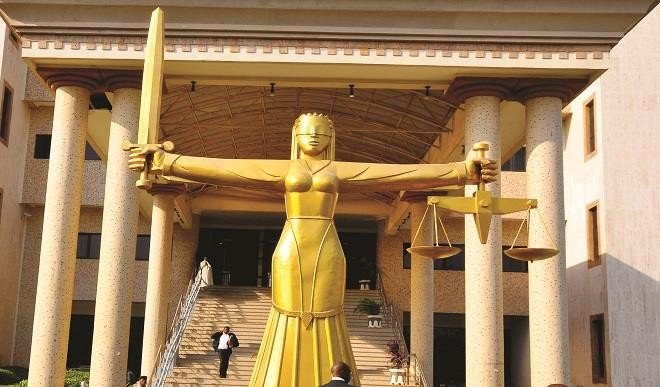The Court of Appeal in Abuja has dismissed an appeal filed by Nnamdi Kanu, the leader of the Indigenous People of Biafra (IPOB), a separatist group proscribed by the Nigerian government. A three-member panel of justices delivered a unanimous judgment, stating that the appeal lacked merit and had become moot following Kanu’s conviction for terrorism-related offenses.
Kanu was convicted and sentenced to life imprisonment by the Federal High Court in Abuja on November 20, after being found guilty of terrorism charges brought by the Department of State Services (DSS). The IPOB leader had claimed that his continued detention by the DSS breached his fundamental rights to human dignity, quality healthcare, and freedom of religion.
In his appeal, Kanu sought to overturn a July 2022 judgment by the Federal High Court, which dismissed his suit against the Director-General of the DSS and the Attorney-General of the Federation. The court had ruled that Kanu failed to prove his case. The convicted IPOB leader had requested to be relocated from DSS custody to Kuje Correctional Centre, citing concerns about his detention conditions.
However, the Court of Appeal ruled that the appeal was no longer feasible, given Kanu’s conviction and subsequent imprisonment. Justice Boloukuromo Ugo, who delivered the lead judgment, noted that Kanu’s lawyer had confirmed that his client was being held at the Sokoto Correctional Centre. As a result, the court could no longer order his transfer to Kuje Correctional Centre, as previously requested.
The judgment highlights the ongoing legal battles faced by Kanu, who has been a prominent figure in the separatist movement in Nigeria’s southeastern region. The IPOB leader’s conviction and imprisonment have sparked controversy and raised concerns about human rights and freedom of expression in the country. The case is likely to have significant implications for the Nigerian government’s handling of separatist movements and the treatment of detained individuals.



